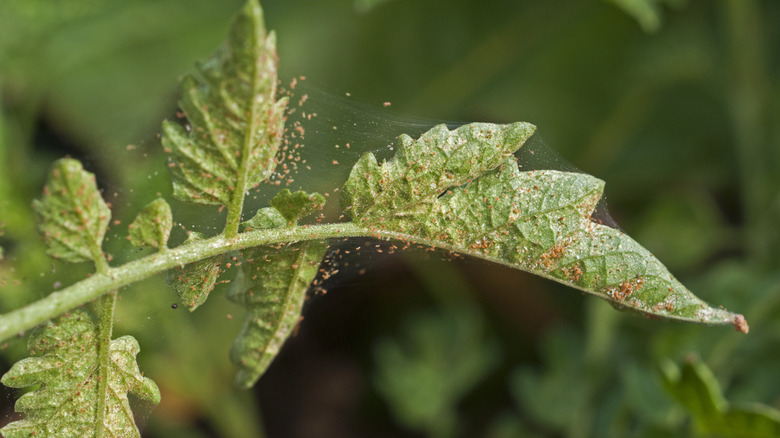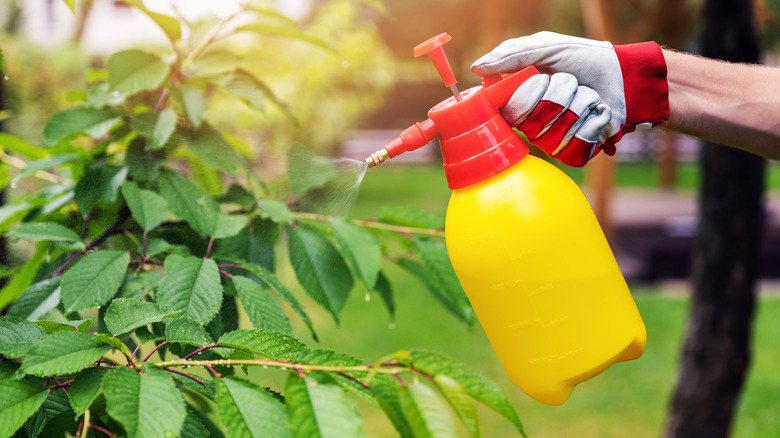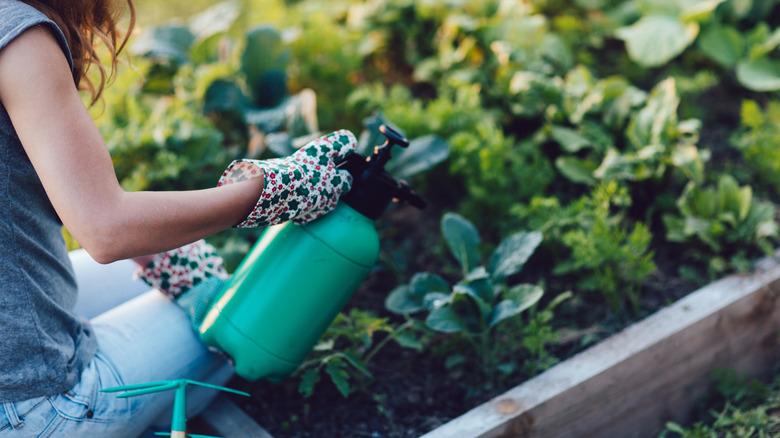Can Olive Oil Really Help Keep Pests Out Of The Garden?
Rich in monounsaturated fatty acids, antioxidants, and phytonutrients, olive oil is more than just a staple in your kitchen. In addition to its well-known health advantages for humans, it has intriguing applications in your garden. Specifically, olive oil can act as a natural pest deterrent that certain pesky intruders like spider mites, aphids, and whiteflies find challenging to navigate. These tiny invaders do more than nibble on your plants; they actively engage in destructive behavior. They feed on essential plant parts such as leaves and root hairs and, worse yet, serve as vectors for harmful bacterial and fungal diseases. The consequences can be dire, ranging from reduced plant yield to severe health deterioration and even plant death in extreme cases.
Pests are far from harmless, rather, they're formidable foes that can spell disaster for your garden if left unchecked. That's where the promise of olive oil comes in. While it can offer your plants some level of protection, it's crucial to apply it cautiously. Excessive or undiluted application can lead to adverse effects on plants, so moderation and proper technique are essential for optimal results.
The two faces of olive oil in pest control
Olive oil can aid and undermine your gardening efforts. When you spray it on affected areas, the oil seeps into bugs' breathing pores and cuts off their oxygen supply, leading to their demise. However, olive oil isn't a magical solution for all your gardening woes. If applied carelessly — by saturating your soil — you may find that you've created a feast for pests.
Furthermore, it's essential to dispel the notion that olive oil is entirely harmless to plants. This kitchen staple is no garden fertilizer. Not only can it attract pests when used improperly but it can hinder the plant's water and nutrient absorption, which can significantly compromise plant health. In extreme cases, the oil's poor water drainage may cause further suffocation of your plant, putting your plants on the road to decline. Therefore, while olive oil has specific benefits, such as suffocating smaller pests, it has its share of drawbacks that can't be ignored. If you're contemplating using olive oil in your garden, it's crucial to do so judiciously and in conjunction with other pest management strategies.
Application guidelines: using olive oil as a pest deterrent
If you've weighed the pros and cons and are leaning toward using olive oil for pest control, there's a right way to go about it. Mix olive oil with some dish soap— the dish soap enhances the sticking power of the mixture, making it adhere to both plants and pests. Dissolve ½ teaspoon of olive oil and ½ teaspoon of dish soap in about 2 ½ cups of water and transfer it to a spray bottle. Shake it well to ensure an even mixture.
Before you go full throttle with your new homemade pesticide, please test it out. Apply the mixture to a few leaves and wait until the next day to check for any negative reactions. It's also advisable to avoid spraying during peak sunlight hours, as excess light could cause additional stress. After these preliminary steps, you can spray the mixture on areas where you've noticed pest activity.
All in all, when used judiciously, olive oil can help you tackle a pest issue, but it shouldn't be your only line of defense against pests. Try to employ it as part of a broader, more balanced approach to garden health. Generally speaking, diversifying your pest management techniques is essential for sustainable gardening. Other methods, like introducing predator insects or applying organic compost, can help to effectively maintain a healthy garden ecosystem.


